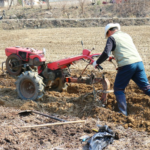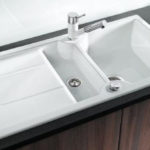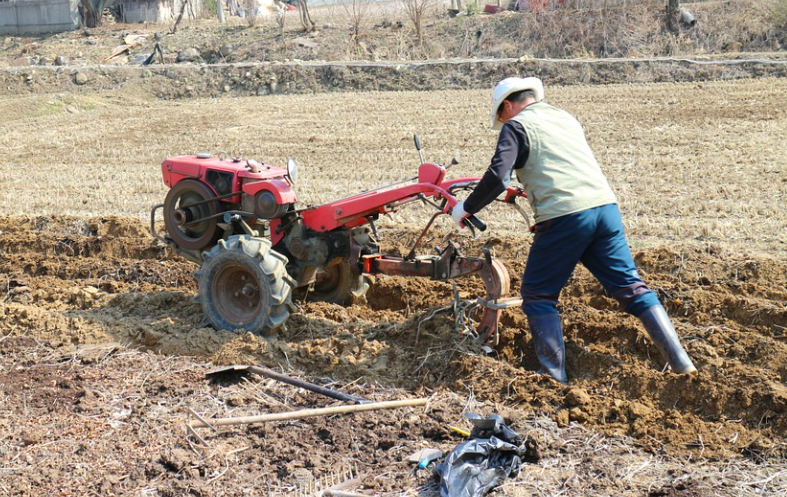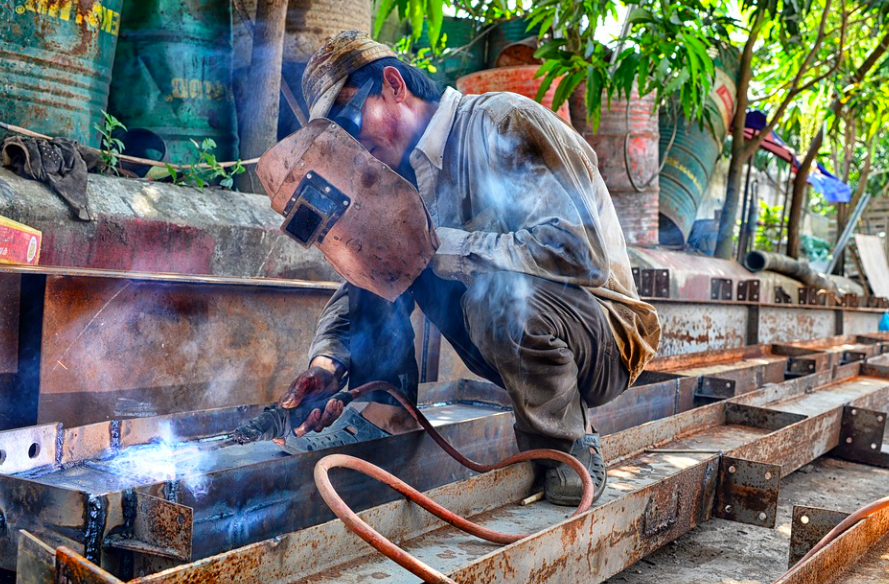Welding with an inverter: which electrodes are best for beginners to use
Most beginners in the field of welding do not understand: which electrodes are best to put on the inverter so that nothing happens. As a result, they take anyone in the store that the consultant recommends and work at home. You are unlikely to find photos and videos of such a disappointing experience.
The purpose of our article is to tell you which electrodes beginners should choose for inverter welding and what are the features of each option. The information will also be useful for professionals - they will increase the amount of knowledge in order to know which electrodes should be chosen for inverter welding. Let's start exploring!
The content of the article
Electrode parameters for inverter welding: where to look to choose the right product
To choose the best electrodes for your welding machine, you should take into account the characteristics of the welding material itself. Let us dwell on the main factors that every experienced and professional welder considers.
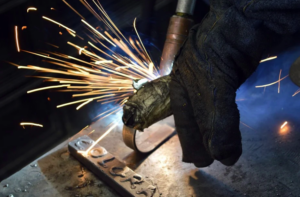
What is the purpose of the electrodes for the inverter?
The purposes for using consumables are different. From this, all electrodes are divided into several categories. This separation is explained by the characteristics of the metal that you are going to connect and the technical characteristics of the product.The purpose of all products can be viewed in the category of State Standard 9466-75. Below we have described several groups:
- Welding low carbon steel.
- Welding metal with high thermal capacity.
- Welding steels with additional properties.
- Surfacing of layers under an electric arc.
- Working on cast iron products.
- Welding of copper and derivative alloys.
We conclude: the best electrodes for inverter welding are selected, first of all, according to their intended purpose. This will help avoid mistakes in the future. For example, in order not to weld stainless steel with electrodes for high-carbon metals or copper. The seam will quickly rust and become unusable, although it should last longer than the metal base itself.
Look at consumable equipment based on the type of metal element and its characteristics. Afterwards, the type of best electrode for welding is selected.
What type of coating electrodes are best used in inverter welding
As you already understand, there are several types of coating for the consumable element under the inverter. The most popular are basic and rutile. Each of them has striking differences and is used in a specific situation. Let's figure out what the point is in more detail.
Basics
Electrodes with a basic coating have a number of positive qualities. Firstly, they provide an even and high-quality seam. Secondly, the welding site is resistant to intergranular corrosion and variable loads.
The base coating allows the base material to operate at low temperatures. But in order to get such a seam, you need to get used to it and gain some experience.
Products that can be welded are additionally calcined before installation in working elements or structures.Before joining, the metal must be cleaned of plaque and rust.
The electrode with the main coating operates exclusively on direct current with reverse polarity.
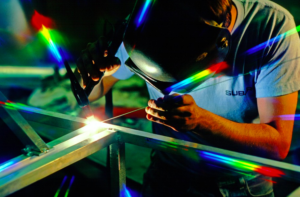
Rutile coating
The product of this format is universal. If you don’t know which electrodes are best for a beginner to cook with an inverter, then feel free to choose one with a rutile coating.
Their main feature is high-quality welding even on an uncleaned plane, on oxidized and dirty metal planes. But this certainly does not mean that the metal should not be processed. Vice versa.
Electrodes can operate on both direct and alternating current. They can be ignited several times without any problems due to the additional composition of the coating. During welding, a minimal amount of slag elements is formed that do not require physical effort to remove.
Choosing which electrode coatings are best used for inverter welding depends on the welded joint and the requirements for it. The parameters may include: resistance force, impact strength and others. This is influenced by both the type of welded metal and its chemical composition.
Operating rules
We have already talked about how to choose electrodes for welding with an inverter. It is worth talking about the rules of working on a welding machine. Without them, even the best electrodes for inverter welding for beginners will not work at full capacity.
Here's a small checklist:
- It is better to start your welding practice with rutile electrode coating. Due to their special composition, the work is simplified several times. They are easier to set on fire and allow you to cook in a weak arc. You will be able to control the entire process and see the welding. Another plus is that waste is easier to remove.
- Half the battle is if you set the correct amperage and polarity.For direct current and straight polarity, the metal is connected to the plus, the electrode to the minus. If the value is reversed, the polarity of the wires is reversed. The current strength itself is best adjusted according to the manufacturer's instructions.
- Before working on the desired metal, practice for a week on scraps that have similar characteristics to the base. You will be able to intuitively configure all inverter parameters for successful welding.
- You can't go anywhere without safety equipment. Do not start welding until you are sure that you and those around you are protected from the welding machine. Protective clothing and gloves are your permanent equipment. Put a welding mask or goggles on your head.
- Before turning on the power, make sure that the device is connected correctly. Keep flammable materials away. Work better alone, without others in the workshop.
Practice, practice and again – practice. After a couple of months, you will learn how to properly configure the welding machine, and then select electrodes. We hope that our short article has brought you new experience in choosing consumables for inverters. Good luck!

